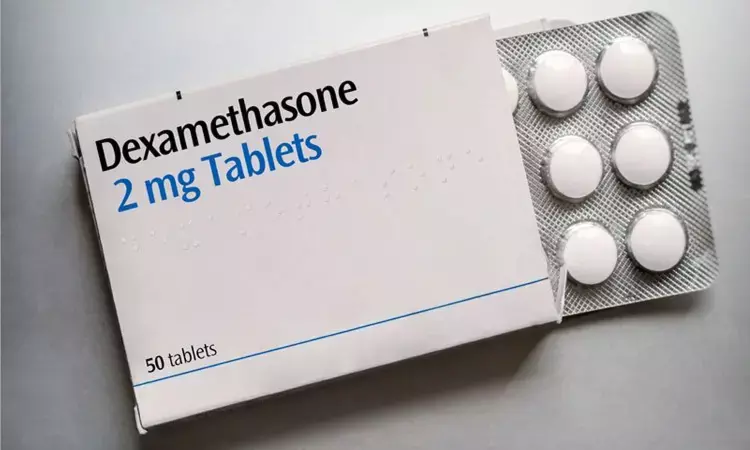- Home
- Medical news & Guidelines
- Anesthesiology
- Cardiology and CTVS
- Critical Care
- Dentistry
- Dermatology
- Diabetes and Endocrinology
- ENT
- Gastroenterology
- Medicine
- Nephrology
- Neurology
- Obstretics-Gynaecology
- Oncology
- Ophthalmology
- Orthopaedics
- Pediatrics-Neonatology
- Psychiatry
- Pulmonology
- Radiology
- Surgery
- Urology
- Laboratory Medicine
- Diet
- Nursing
- Paramedical
- Physiotherapy
- Health news
- Fact Check
- Bone Health Fact Check
- Brain Health Fact Check
- Cancer Related Fact Check
- Child Care Fact Check
- Dental and oral health fact check
- Diabetes and metabolic health fact check
- Diet and Nutrition Fact Check
- Eye and ENT Care Fact Check
- Fitness fact check
- Gut health fact check
- Heart health fact check
- Kidney health fact check
- Medical education fact check
- Men's health fact check
- Respiratory fact check
- Skin and hair care fact check
- Vaccine and Immunization fact check
- Women's health fact check
- AYUSH
- State News
- Andaman and Nicobar Islands
- Andhra Pradesh
- Arunachal Pradesh
- Assam
- Bihar
- Chandigarh
- Chattisgarh
- Dadra and Nagar Haveli
- Daman and Diu
- Delhi
- Goa
- Gujarat
- Haryana
- Himachal Pradesh
- Jammu & Kashmir
- Jharkhand
- Karnataka
- Kerala
- Ladakh
- Lakshadweep
- Madhya Pradesh
- Maharashtra
- Manipur
- Meghalaya
- Mizoram
- Nagaland
- Odisha
- Puducherry
- Punjab
- Rajasthan
- Sikkim
- Tamil Nadu
- Telangana
- Tripura
- Uttar Pradesh
- Uttrakhand
- West Bengal
- Medical Education
- Industry
High-dose dexamethasone fails to improve dyspnea in cancer patients: Lancet

USA: A new study published in The Lancet Oncology showed that high-dose dexamethasone was linked to increased adverse events and did not significantly improve dyspnea in cancer patients.
Despite the lack of evidence supporting their effectiveness, systemic corticosteroids are frequently recommended to cancer patients to relieve their dyspnea. In order to compare the impact of high-dose dexamethasone to placebo on cancer-related dyspnea, David Hui and colleagues carried out this study.
The University of Texas MD Anderson Cancer Center and the general oncology clinic at Lyndon B. Johnson General Hospital both participated in the randomized, controlled experiment. Dexamethasone 8 mg orally every 12 hours for 7 days, followed by 4 mg orally every 12 hours for 7 days, or identical placebo capsules for 14 days were randomly assigned (2:1) to ambulatory cancer patients, with an average or higher dyspnea intensity score on an 11-point numerical rating scale. To determine group assignments, patients, researchers, and doctors were concealed. The main result was the change in dyspnea NRS intensity from baseline to day 7 (around two days) throughout the previous 24 hours.
The key findings of this study were:
1. 2867 people were examined between January 11, 2018, and April 23, 2021, 128 participants were recruited and randomly allocated to receive dexamethasone (n = 85) or a placebo (n = 43).
2. There was no statistically significant between-group difference in the mean change in dyspnea NRS intensity from baseline to day 7 (2 days), which was -16 in the dexamethasone group and -16 in the placebo group.
3. Infections, sleeplessness, and neuropsychiatric symptoms were the most frequent all-cause grade 3–4 adverse events.
4. Three (7%) of the 43 patients in the placebo group and 24 (28%) of the 85 patients who received dexamethasone reported experiencing serious side effects, all of which required hospital hospitalization.
'High-dose dexamethasone shouldn't be regularly administered to cancer patients to treat dyspnea due to the dangers involved. This research does not rule out the possibility that some advantages might accrue to a subpopulation of patients, though. To optimize the risk-benefit ratio, more research on corticosteroids for symptom management is required to find the proper dose in the appropriate individuals," said the PI in conclusion.
Reference:
Hui, D., Puac, V., Shelal, Z., Dev, R., Hanneman, S. K., Jennings, K., Ma, H., Urbauer, D. L., Shete, S., Fossella, F., Liao, Z., Blumenschein, G., Gandhi, S. J., Tsao, A., Mahler, D. A., & Bruera, E. (2022). Effect of dexamethasone on dyspnoea in patients with cancer (ABCD): a parallel-group, double-blind, randomised, controlled trial. In The Lancet Oncology. Elsevier BV. https://doi.org/10.1016/s1470-2045(22)00508-3
Neuroscience Masters graduate
Jacinthlyn Sylvia, a Neuroscience Master's graduate from Chennai has worked extensively in deciphering the neurobiology of cognition and motor control in aging. She also has spread-out exposure to Neurosurgery from her Bachelor’s. She is currently involved in active Neuro-Oncology research. She is an upcoming neuroscientist with a fiery passion for writing. Her news cover at Medical Dialogues feature recent discoveries and updates from the healthcare and biomedical research fields. She can be reached at editorial@medicaldialogues.in
Dr Kamal Kant Kohli-MBBS, DTCD- a chest specialist with more than 30 years of practice and a flair for writing clinical articles, Dr Kamal Kant Kohli joined Medical Dialogues as a Chief Editor of Medical News. Besides writing articles, as an editor, he proofreads and verifies all the medical content published on Medical Dialogues including those coming from journals, studies,medical conferences,guidelines etc. Email: drkohli@medicaldialogues.in. Contact no. 011-43720751


